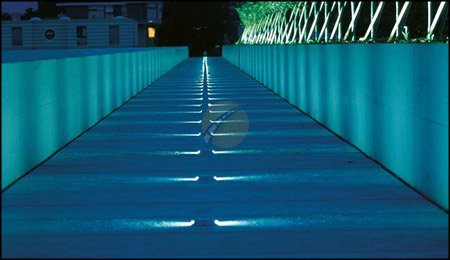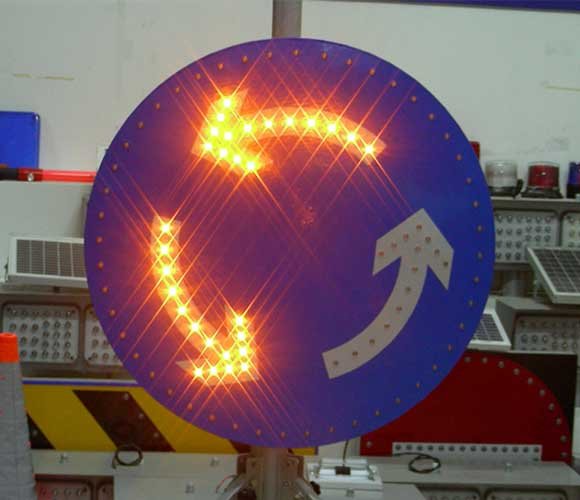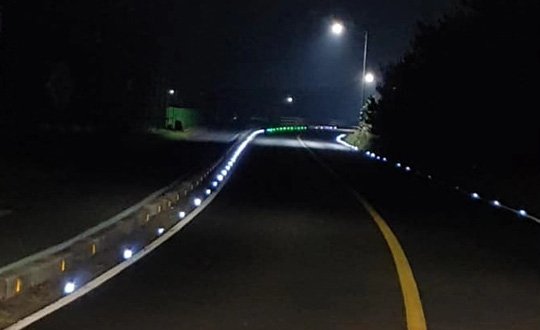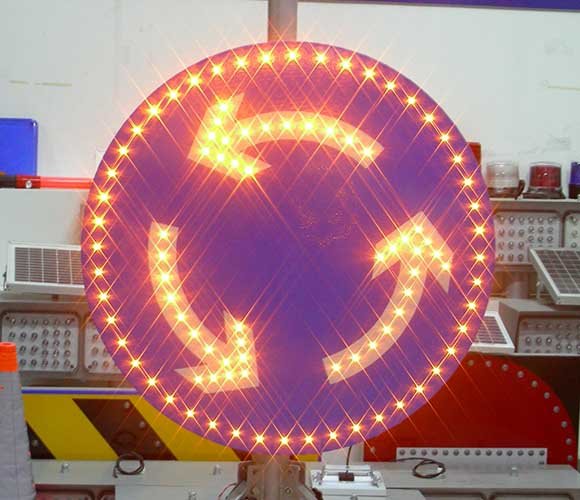The evolution of solar road stud lights marks a significant leap forward in how road safety and infrastructure management are approached. From basic reflective markers, these devices have transformed into intelligent systems that enhance visibility, improve safety, and optimize energy use, thanks to several technological advancements.
Key Technological Advancements
- Smart Sensing Capabilities: Modern solar road studs are equipped with sensors that respond to environmental changes like light levels, vehicle presence, and adverse weather. This capability allows them to adjust their brightness automatically, enhancing visibility when most needed while conserving energy during off-peak times.
- IoT Integration: The integration of Internet of Things (IoT) technology allows for remote monitoring and management of road stud systems. This connectivity enables:
- Real-time performance monitoring.
- Immediate identification of maintenance needs.
- Adaptive lighting control based on traffic patterns and conditions.
- Efficient Energy Storage Systems: The adoption of advanced battery technologies, including lithium-ion and solid-state batteries, extends the operational life of solar studs, ensuring they remain functional during prolonged periods of low sunlight.
- Enhanced Durability: Using materials such as polycarbonate and aluminum alloys, along with designs that are both waterproof and shock-resistant, increases the resilience of solar road studs against environmental stresses.
- Solar Panel Efficiency: Improvements in photovoltaic cell technology have significantly boosted the efficiency of solar panels used in road studs, allowing for quicker charging and longer durations of operation.
Benefits of Intelligent Solar Road Stud Lights

- Improved Road Safety: Enhanced visibility and dynamic response to conditions help reduce the likelihood of accidents, particularly in poor visibility scenarios.
- Energy Efficiency: Smart energy management systems ensure that the studs use power judiciously, thereby maximizing their operational time and minimizing waste.
- Cost-Effectiveness: Although the initial setup cost is higher, the long-term savings from reduced maintenance and lower energy consumption provide a favorable return on investment.
- Environmental Sustainability: By harnessing solar energy, these devices reduce reliance on non-renewable power sources and decrease overall carbon footprints.
- Adaptability: Intelligent solar road studs can be customized to a wide array of environments, making them suitable for diverse applications from urban streets to remote highways.
Challenges and Future Directions
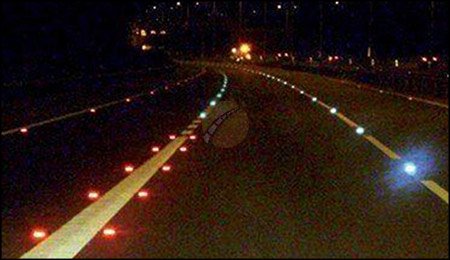
- Integration Costs: The sophisticated technology embedded in intelligent solar road studs can lead to higher initial costs. Continuous technological advancements are, however, expected to drive down these costs over time.
- Data Security: With increased connectivity comes the challenge of securing data against potential cyber threats. Ensuring robust security measures is essential as the technology becomes more widespread.
- Scalability: As urban areas expand and the demand for smart infrastructure grows, the scalability of solar road stud systems will be critical.
- Continuous Innovation: Ongoing research and development are necessary to further enhance the efficiency, durability, and cost-effectiveness of these devices.
The shift from traditional reflectors to smart, connected solar road stud lights represents a significant milestone in roadway safety and efficiency. As these technologies continue to evolve and integrate into our transportation networks, they promise not only to enhance road safety but also to lead us towards more sustainable and intelligently managed infrastructure.

